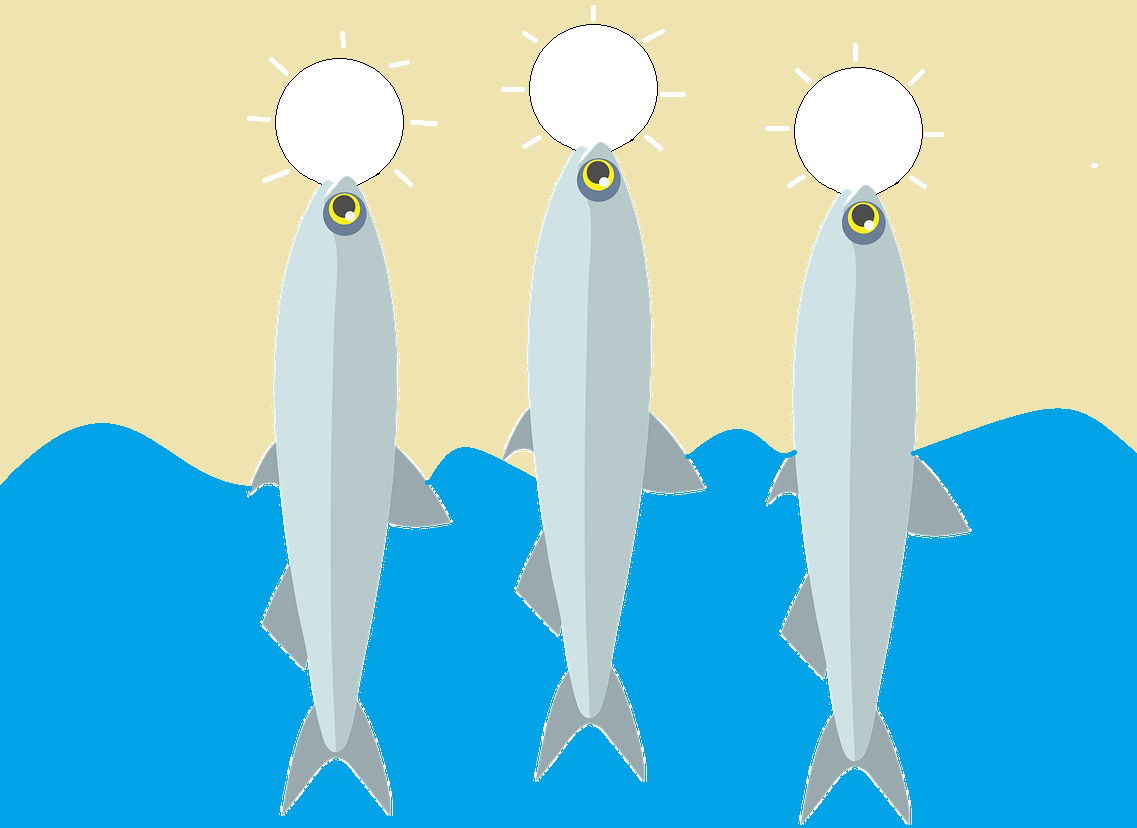Three fish rescue the Eucharists carried away by the current and deliver them back to the priest in the chalice: the miracle that granted special days for the celebration of Corpus Christi in the cities of Alboraya and Almácera in Spain

After Easter, after exactly 60 days, obligatorily on a Thursday (referring to Holy Thursday of the Last Supper of Christ), the day of Corpus Christi is celebrated, integrating the official calendar of the Catholic Church. But did you know that in two small towns in Spain there are other special dates for this commemoration officially granted by the church? Everything is related to the "miracle of fish" ! The fish really seem to be a creation of God that assumed a great purpose in the conversion of His sons in the face of the great miracles that God bestowed through them. We've already admired some of them around here in our posts. We will continue reporting another beautiful eucharistic miracle, now in Spain, involving three large fish!!!
The Eucharists carried by the current
Three people were sick and one of them was a recent convert almost dying, in the villages of Alboraya and Almácera - very close to the city of Valencia in Spain. Therefore, they needed the priest to bring them Holy Communion . At that time, the year 1348 , this route with the Eucharists was made under honors, carried by the priests in the monstrances, accompanied by altar boys, to the sound of bells and faithful following them solemnly.
At a certain point along the way, they needed to cross the Carraixet River , which had higher-than-normal water levels due to recent heavy rains in the region. Result: the mule carrying the priest slips and knocks him down. The monstrance containing the Hosts opens as it falls and they fall into the water. After fighting with the river and the mud, the priest is saved but not being able to recover the Holy Eucharists in time, being carried away by the current.
Three fish "hold" the Eucharists as trophies
The local population that accompanied the solemn journey did not give up and began to "sweep" the waters in search of the Eucharistic Lord along the entire river, as far as where it flows into the sea. The next morning, some fishermen noticed a light coming from a ravine near the point where the river met the sea. They also saw three large fish with their bodies out of the water with three "discs" in their mouths that looked like Hosts, leaving them fascinated with the possible miracle they could be seeing. They ran to call the priest to the place, warning that they had seen something supernatural: fish holding luminous shapes in their mouths, which looked like Eucharists. He is greatly happy with the news and quickly heads towards the sea, taking a chalice to collect the Holy Eucharist, almost without doubt of what he would see.
Arriving, he approached and the miracle was in front of him and the others present: the three big fish had the Eucharists intact, holding them in their mouths and with their bodies almost completely out of the water: as if they were holding trophies!!! The priest kneels down, prays deeply with great devotion and inclines the chalice next to the fish. One at a time approaches, places the Eucharist in the chalice and quickly returns to the bottom of the sea.
Special days to celebrate Corpus Christi
The monstrance that carried the Hosts that day can still be seen in the small town of Alboraya . As for the chalice, it is venerated throughout the year in the parish of Nossa Senhora da Assunção, in the same city. The miracle was well documented, with all records still available for consultation today. With these reports and writings, a petition was made to Pope Clement VI, leading the Holy See to marvel at the miracle, recognizing it and even granting (through a bull) special days of commemoration of Corpus Christi to the two cities involved.
In Alboraya , Corpus Christi is always celebrated in the first week of July , before the 10th, coinciding with the celebration of São Cristóvão, patron saint of the city. In the city of Almácera , in turn, the celebration is always on the fourth Sunday of August.
A small church was built on the site of the miracle. Every year they have a fish festival, a pilgrimage from the parish of Alboraya to the small church, Corpus Christi celebrations, and other celebratory activities.
References: Archidiócesis de Valência, Miracoli Eucaristic, Catolicismo, Alboraia Ajuntament, Brasil Escola, Valencia Fiesta & Tradición, Arzobispado de Valência